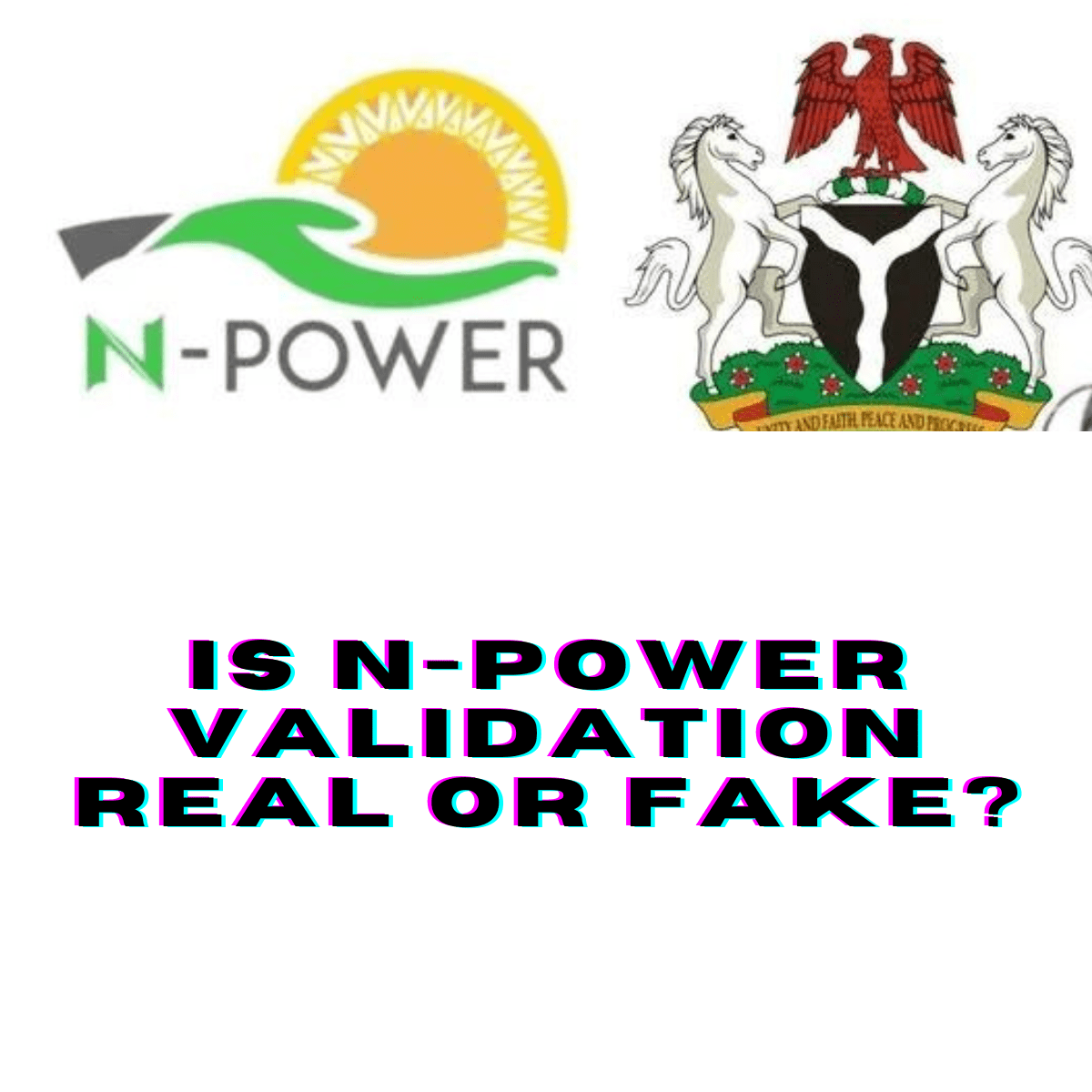In the vast and often confusing landscape of government initiatives aimed at empowerment and poverty alleviation, Nigeria’s N-Power scheme stands out as a beacon of hope for many. Launched as part of the National Social Investment Program, it aims to address the issues of youth unemployment and promote social development. However, amidst its commendable objectives, there have been swirling questions and concerns about the legitimacy of certain aspects of the program, specifically the N-Power validation process. Is it a genuine step towards ensuring the effectiveness of the program, or is it a facade masking inefficiencies or even deceit? In this comprehensive exploration, we delve deep into the N-Power validation process, offering clarity and insight to all stakeholders.
Understanding N-Power and Its Validation Process
Before we dissect the authenticity of the N-Power validation process, it’s crucial to understand what N-Power is and the role validation plays in its framework. N-Power is a scheme initiated by the Nigerian government under its Social Investment Program to foster skill development, job creation, and empowerment for young Nigerians. The program is designed to help young Nigerians acquire and develop life-long skills to become practical solution providers in their communities, enhancing their potentials for entrepreneurship and employability.
The N-Power validation process, a critical component of the program, is designed to verify the eligibility and authenticity of applicants. This process ensures that only qualified candidates are selected to benefit from the various programs under N-Power, such as teaching, health, agriculture, technology, and creative sectors. But with reports of scams and fraudulent activities surrounding job schemes in Nigeria, many are left wondering: is the N-Power validation real or fake?
Delving Into the Authenticity of N-Power Validation
To address the concerns surrounding the N-Power validation process, it’s important to look at the mechanisms the Nigerian government employs to ensure its integrity. The validation process involves several stages, including application, verification of documents, and a final selection phase. The government, through the Ministry of Humanitarian Affairs, Disaster Management, and Social Development, has continually emphasized its commitment to transparency and fairness in the process.
Moreover, the introduction of digital platforms for application and validation has increased the efficiency and security of the process. These platforms are equipped with features that detect fraudulent activities and ensure that only eligible candidates progress through the stages. However, like any system, the possibility of exploitation cannot be entirely ruled out, which leads to mixed perceptions about the validation’s authenticity.
The Impact of Misinformation and Scams
One of the primary factors contributing to skepticism about the N-Power validation process is the prevalence of misinformation and scams. Fraudsters often exploit the desperation of job seekers, offering fake validation services in exchange for money. These scams not only tarnish the image of the N-Power program but also lead to a loss of trust in the government’s initiatives.
To combat this, the government and the program’s administrators frequently issue warnings and advice to applicants, urging them to rely only on official channels for information and to avoid unofficial intermediaries. Recognizing and addressing these challenges is crucial for maintaining the integrity of the N-Power program and its validation process.
Leveraging Transparency and Technology
Enhancing the transparency and leveraging technology is pivotal in affirming the authenticity of the N-Power validation process. The Nigerian government has made strides in this direction by incorporating technology to streamline the application and validation processes. For instance, the use of biometric verification and digital databases significantly reduces the chances of fraud, ensuring that the process is both real and effective.
Additionally, regular updates and communication from the N-Power program via official websites and social media platforms play a vital role in keeping applicants informed and engaged, further reinforcing the legitimacy of the validation process.
Frequently Asked Questions (FAQs)
Q: How can I ensure I’m following the correct N-Power validation process? A: Always refer to the official N-Power website or official government communication channels for any information regarding the application and validation process.
Q: Are there any fees associated with the N-Power validation process? A: No, the validation process is free. The Nigerian government does not charge applicants for validation. Beware of scams asking for money in exchange for validation or placement in the N-Power program.
Q: What should I do if I encounter a scam or fraudulent activity? A: Report any suspicious activities or scams to the authorities immediately. Providing details of your encounter can help in taking action against the fraudsters and preventing others from falling victim.
Q: Can I apply to N-Power if I’m currently employed? A: N-Power is primarily aimed at unemployed youths. The criteria for application may vary depending on the specific program under N-Power you’re applying for. Check the official guidelines for more details.
Q: How long does the N-Power validation process take? A: The duration of the validation process can vary based on the volume of applications and the specific program applied for. Always check the official N-Power communication channels for updates regarding timelines.
Engaging With the Readers
As we unravel the complexities surrounding the N-Power validation process, it’s clear that while challenges exist, the process itself is founded on principles of transparency and fairness, aimed at genuinely empowering Nigerian youths. Have you or someone you know applied for N-Power? What was the experience like, especially regarding the validation process? Your insights and experiences can shed more light and offer valuable perspectives to others navigating this path.
In conclusion, the N-Power validation process, despite being marred by instances of fraud and misinformation, stands as a critical component of Nigeria’s efforts to address unemployment and empower its youth. Through continuous improvement, transparency, and the leverage of technology, the process can achieve its intended purpose, helping to build a more skilled and empowered Nigerian workforce.
